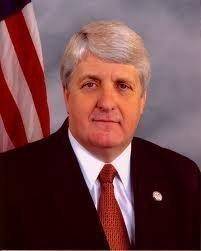The White House Office of Budget and Management is currently reviewing proposed guidance, submitted by the Environmental Protection Agency (EPA) and Army Corps of Engineers (Corp), to significantly broaden the scope of federal authority under the Clean Water Act (CWA). The EPA/Corps’ proposal — “Final Guidance on Identifying Waters Protected by the Clean Water Act”—expands the definition of what constitutes the “waters of the United States” and would apply to all CWA programs. It offers a sweeping interpretation of Supreme Court Justice Anthony Kennedy’s “significant nexus” test for determining regulatory jurisdiction over wetlands in a way that would allow the EPA and the Corps jurisdiction over all types of waters.
This unilateral expansion of federal authority would weaken states’ historic authority to manage water within their borders by undermining long-standing, federal-state CWA partnerships. It would also impact the private property rights of farmers and ranchers whom would be required to obtain permits for common everyday activities, like driving a tractor near an irrigation ditch or grazing cattle near a mud hole. Additionally, this guidance switches the burden of proof that a particular feature is not a “water of the United States” from the federal government to the individual property, and thereby, adding further administrative burdens on private property owners. Based on EPA’s own limited estimation, the annual costs to property owners stemming from the implementation of the guidance are estimated to be between $87 million to $171 million. В These estimates do not include costs imposed on new land use restrictions, permitting costs, and increased delays associated with increased federal jurisdiction.
H.R. 4965 will prevent the EPA/Corps from using this proposed guidance to expand the federal regulatory regime under the CWA. S. 2245, the Preserve the Waters of the United States Act, is the companion legislation to this House bill.
For more information on the bill please contact the office Rep. John Mica (R-FL).
В

